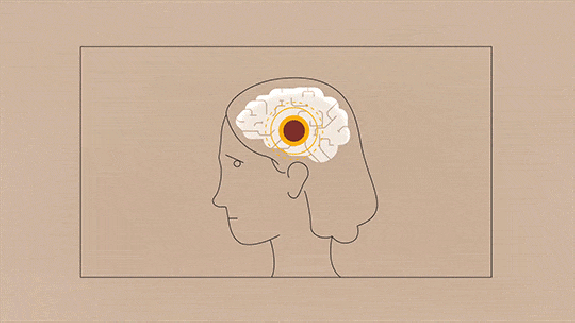The pandemic has taken a toll on almost every individual’s life. The unavailability of any proper social and economic guidance has made a lot of people naive about their futuristic goals. Since the outbreak of the COVID-19 pandemic, the students have been in a disarray to find a balance between their personal and educational needs. Research has shown a spike of anxiety and depression since the beginning of the epidemic as compared to the past five years. Though with time the effects of sudden changes in educational norms have changed, still the number of students affected by it remains constant. The students’ normal life has been hampered to a vast extent and it’s affecting their mental health.
Being unable to do the activities they have engrossed in such a long time has made them weary and willing to give up. Research has also forecasted how students spend the maximum time of their days staring at devices either for taking online classes or doing assignments or for their own interests. This has highly affected their sleep cycle and their sleeping hours have considerably reduced. Students find it difficult to concentrate during online classes as continuous exposure to screen light affects many of them. With the advent of social distancing, as the young adults became less likely to go outside and meet their peers, they came under constant exposure to self-isolation. They tend to become more lonely as they also could not do much of physical activity.

The pandemic did take a huge toll on their mental health. Students became more vulnerable as they were not being able to cope up with the societal changes. Many of them became victims of anxiety, loneliness, frustration, and sadness as they were unable to cope with the harsh reality. Their growth revolved around a state of fear about their future and well being of their loved ones. This fear of uncertainty became very common among the youth, and thus, a very common reason for the spurring anxiety.
How did the students react the unprecedented burden?
No one would have thought that this pandemic would bring about such gruesome changes in our lives. The students have felt an unadulterated load of emotions and feelings in this tough time. Some faced an economical burden to maintain their studies while some were going through the stress of coping up with their academics. Many felt unproductive during this time of pandemic as they were not very used to the situation. Lethargy kicked in, and students spend most of their time wasting it. They felt the need to mobilize their work and other household activities. Some students faced sudden urges to “run away” as an expression to take a break from everything. Young adults tend to feel homesick in their own homes. They wanted to take responsibility for their overuse of gadgets and take a break from this digitalized world. Many of the time, because of the same technology and an environment of negativity all around, the youth started to lose hope and had these sudden urges to give up. There was a sudden spur of suicidal thoughts and behavior among a lot of people. They started to feel discouraged and lost the motivation to do anything. Though some young adults tried to take up learning something new to develop their skills in, they couldn’t keep with the patience and motivation required, and apparently gave up. The students didn’t do too much to address their negative thoughts and just kept pushing it aside. This apparently had a very negative impact on their minds and their behavior.

How can you help yourself?
It is important to keep your mental health sane to be able to go through such a tough time. You can easily help yourself if you do certain basic things to feel better than just ‘okay’. In times like these, it is more important to be true to oneself and others and be able to face your feelings. It is also necessary to recognize people who feel the same and uplift them in these desperate times.

- Schedule your day: Since now there is no institution to go on time, you become lethargic to wake up on time. Start off by maintaining a schedule that suits your timing. Write about your classes, meals, and bedtime hours and adhere to it. This is most likely to bring about consistency in your life.
- Limit your social media usage: Since the advent of the pandemic, everyone has been too addicted to their phones. This is one of the primary reasons young adults are not making time for themselves. Set your boundary with the amount of time you spend in social media usage, specifically before bedtime.
- Don’t do a lot of media consumption: With all the available negative news around, it gets hard to keep our eyes off the television and not worry. Stress is one of the biggest contributing factors to mental health and it’s time to work on the amount of time we spend watching the news.
- Talk to people: It is important to connect with the people you love. Talk to them, make conversations, ask about each other, and keep a check. This way it will enhance your sense of belonging.




















